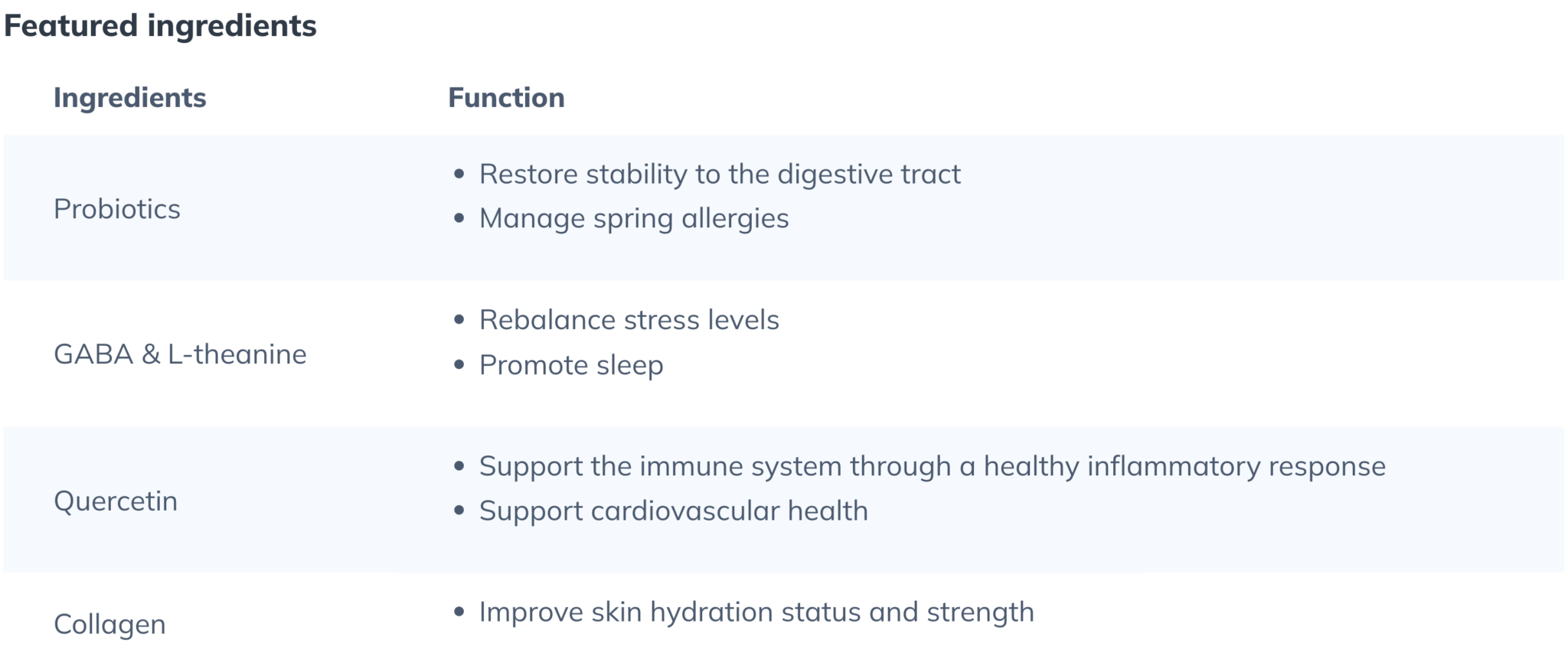General Wellness: Spring Health
February 16, 2023
Protocol development in integrative medicine is not typically a simple process. Individuals require individualized care, and what works for one patient may not work for another.
To establish these protocols, we first developed a Rating Scale that could be used to discern the rigor of evidence supporting a specific nutrient’s therapeutic effect.
The following protocols were developed using only A through C-quality evidence.
Between the holiday festivities, shorter days, and cold weather, for many, winter often brings with it a number of health challenges. Restore whole-body fortitude and prepare for spring with the evidence-based ingredients found in this protocol.

~10 billion CFU per day, for 8 weeks, depending on the patient’s individual needs (Zhang 2016)
200–400 mg of L-theanine (Hidese 2019)(Williams 2020) & 100–300 mg of GABA per day, minimum 4 weeks (Hepsomali 2020)
 Prepare for spring with the evidence-based ingredients found in this protocol.
Prepare for spring with the evidence-based ingredients found in this protocol.
200–500 mg per day minimum, for at least 8 weeks (Mohammadi-Sargang 2017)(Serban 2016)(Yamada 2022)
2.5–10g of collagen hydrolysate per day, 3 months minimum (Choi 2019)(de Miranda 2021)


This site is intended solely as an informational reference tool for practicing healthcare professionals. The content provided is not intended to be for medical diagnosis or treatment, is not a substitute for your professional judgment, and is not meant to provide you with medical or professional advice. You should evaluate and independently confirm the appropriateness of the content provided, and you should rely on your experience and judgment and other available resources when applying the provided content to an actual patient care situation. While content has been obtained from sources believed to be reliable, we cannot and do not guarantee the accuracy, validity, timeliness, or completeness of the content.